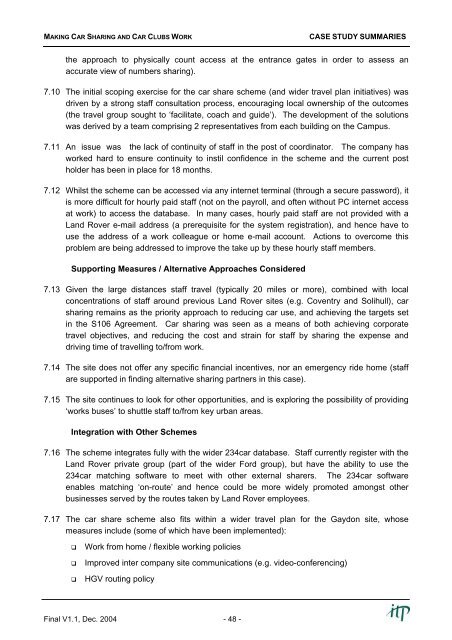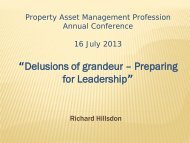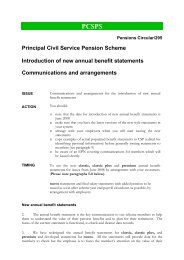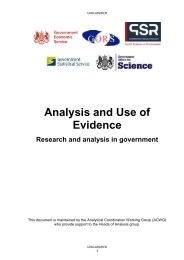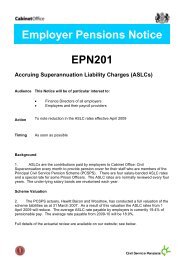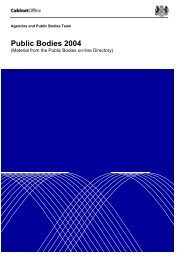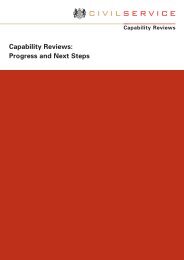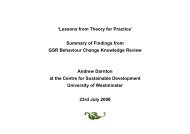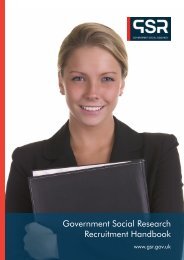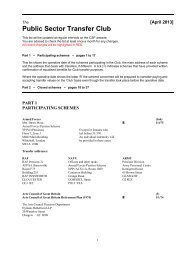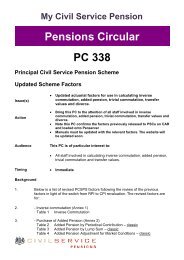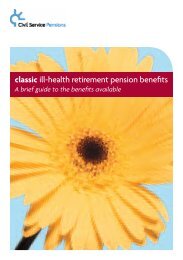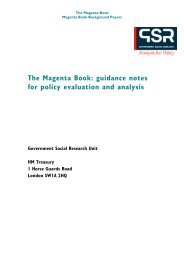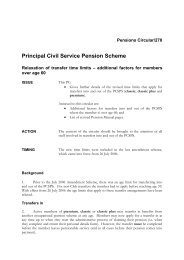Making Car Sharing and Car Clubs Work - Case ... - The Civil Service
Making Car Sharing and Car Clubs Work - Case ... - The Civil Service
Making Car Sharing and Car Clubs Work - Case ... - The Civil Service
You also want an ePaper? Increase the reach of your titles
YUMPU automatically turns print PDFs into web optimized ePapers that Google loves.
MAKING CAR SHARING AND CAR CLUBS WORKCASE STUDY SUMMARIESthe approach to physically count access at the entrance gates in order to assess anaccurate view of numbers sharing).7.10 <strong>The</strong> initial scoping exercise for the car share scheme (<strong>and</strong> wider travel plan initiatives) wasdriven by a strong staff consultation process, encouraging local ownership of the outcomes(the travel group sought to ‘facilitate, coach <strong>and</strong> guide’). <strong>The</strong> development of the solutionswas derived by a team comprising 2 representatives from each building on the Campus.7.11 An issue was the lack of continuity of staff in the post of coordinator. <strong>The</strong> company hasworked hard to ensure continuity to instil confidence in the scheme <strong>and</strong> the current postholder has been in place for 18 months.7.12 Whilst the scheme can be accessed via any internet terminal (through a secure password), itis more difficult for hourly paid staff (not on the payroll, <strong>and</strong> often without PC internet accessat work) to access the database. In many cases, hourly paid staff are not provided with aL<strong>and</strong> Rover e-mail address (a prerequisite for the system registration), <strong>and</strong> hence have touse the address of a work colleague or home e-mail account. Actions to overcome thisproblem are being addressed to improve the take up by these hourly staff members.Supporting Measures / Alternative Approaches Considered7.13 Given the large distances staff travel (typically 20 miles or more), combined with localconcentrations of staff around previous L<strong>and</strong> Rover sites (e.g. Coventry <strong>and</strong> Solihull), carsharing remains as the priority approach to reducing car use, <strong>and</strong> achieving the targets setin the S106 Agreement. <strong>Car</strong> sharing was seen as a means of both achieving corporatetravel objectives, <strong>and</strong> reducing the cost <strong>and</strong> strain for staff by sharing the expense <strong>and</strong>driving time of travelling to/from work.7.14 <strong>The</strong> site does not offer any specific financial incentives, nor an emergency ride home (staffare supported in finding alternative sharing partners in this case).7.15 <strong>The</strong> site continues to look for other opportunities, <strong>and</strong> is exploring the possibility of providing‘works buses’ to shuttle staff to/from key urban areas.Integration with Other Schemes7.16 <strong>The</strong> scheme integrates fully with the wider 234car database. Staff currently register with theL<strong>and</strong> Rover private group (part of the wider Ford group), but have the ability to use the234car matching software to meet with other external sharers. <strong>The</strong> 234car softwareenables matching ‘on-route’ <strong>and</strong> hence could be more widely promoted amongst otherbusinesses served by the routes taken by L<strong>and</strong> Rover employees.7.17 <strong>The</strong> car share scheme also fits within a wider travel plan for the Gaydon site, whosemeasures include (some of which have been implemented):<strong>Work</strong> from home / flexible working policiesImproved inter company site communications (e.g. video-conferencing)HGV routing policyFinal V1.1, Dec. 2004 - 48 -


